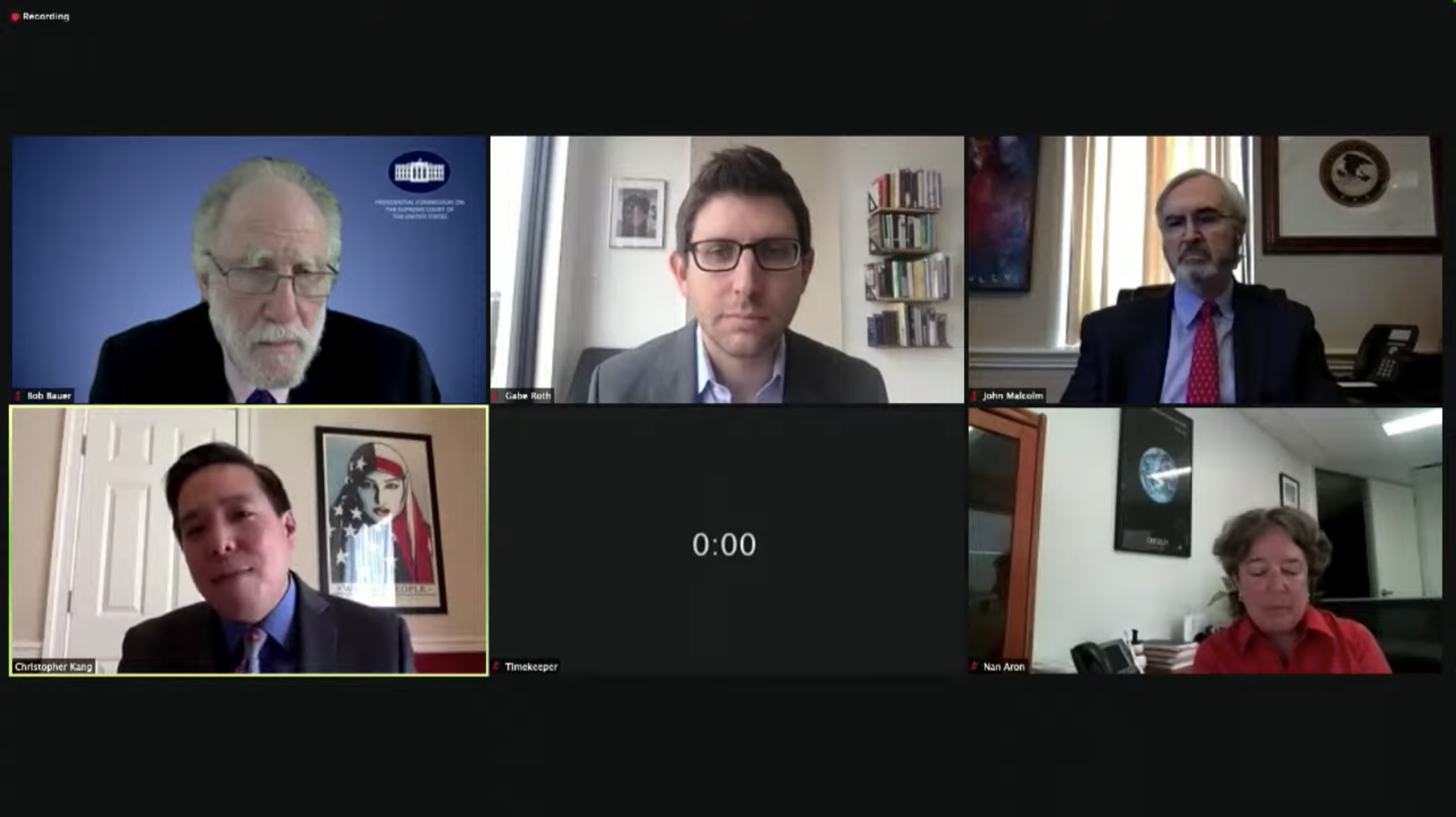FTC's Roth to Biden's SCOTUS Commission: The Judiciary Won't Fix Itself, So It's Up to Congress to Modernize the Most Powerful, Least Accountable Branch
From FTC executive director Gabe Roth’s testimony:
“Though it’s a popular trope, the lack of cameras in the courtroom is not at the heart of what made the Court the most powerful, least accountable institution in D.C. It’s their life tenure, lack of an ethics code and the black box over their conflicts of interest, finances and junkets. Almost no one at the time was diving into this work from a nonpartisan perspective. So in 2014, I started Fix the Court.
“The goal has always been fairly simple: public officials in a democracy need public scrutiny, and since federal judges and justices are public officials, they should not be exempt from it. That scrutiny will build trust in the third branch as a whole at this critical juncture in our history.

“Oddly enough, a blueprint for reform might already exist among the recent rules and regulations enacted in Congress for Congress. The public can watch committee hearings and floor activity in both houses live. Senators and representatives must release, within a month, extensive details about the transportation, food and lodging that third parties pay for. These travel reports are posted online for the public to see. Congressmen and women must report within 45 days when they buy or sell a stock. These reports go online. Members must post their annual financial disclosures online, as well. Congressional staff are covered by a series of anti-harassment, anti-discrimination and anti-retaliation laws. Committee chairs in some cases have term limits.
“These reforms show not only what’s possible — but what’s needed — in the federal judiciary.
“Plus, judicial reform is already deeply popular. Seventy percent of Americans believe that livestreaming in federal appeals courts, including SCOTUS, should be required. About the same percentage wants to end life tenure at the Supreme Court. Nearly 90 percent want the justices to adopt an ethics code. And three-fourths of Americans say the courts should be subjected to as much public scrutiny as the President and members of Congress.
“Of course, the courts could implement these reforms and more and fix themselves, and it had been my fervent wish that judges, justices and judicial administrators would act as partners in my modest modernization efforts. But time and again, they’ve thrown up roadblocks, in many cases lobbying against reform. I’d argue the Judicial Conference has the best lobbying shop in town.
“Now, historically, court reform efforts have been tied to partisanship. We all remember the ‘Impeach Earl Warren’ signs. But there’s been a bit of a change in recent years. Many of the highly visible reform efforts, though seemingly partisan, have been facially neutral when applied more broadly. Liberal attempts to push Justices Thomas and Scalia off certain cases due to their associations with megadonors showed that the public should know more about all justices’ travel. Conservatives failed to get Justice Kagan to recuse from the ACA cases, but it showed that all justices should be more thoughtful about potential conflicts of interest.
“Buoyed by these partisan-slash-nonpartisan efforts, as well as greater attention from the press and public in the judiciary’s work, thanks to its well-documented increase in power vis-à-vis the other branches, lawmakers have begun to coalesce around the idea that reform should not simply be used as a tool to expose the ‘other’ side’s misdeeds but a more consistent application of best practices in government oversight. […]
“It doesn’t matter if the third branch typically comes out ahead of the other two on certain measures of public trust. That shouldn’t mean the judiciary as a whole, or the nine judges on First Street, should be exempted from the gauntlet – and the benefits – that public scrutiny offers. Life tenure must not insulate the justices from basic measures of oversight.
“Also, there shouldn’t be life tenure, and that topic is covered in my written statement.
“In my view, ‘fixing the court’ is not adding four justices or six justices or 29 justices. It’s ensuring that members of the third branch are held to the same high standards of ethics and transparency as those in the other two.
“Real-time access to court hearings. Stronger ethics and disclosure rules. Oversight of stock transactions and travel. Increased understanding of potential conflicts of interest. Increased awareness that in a democracy, there should be limits to one’s power and tenure.”